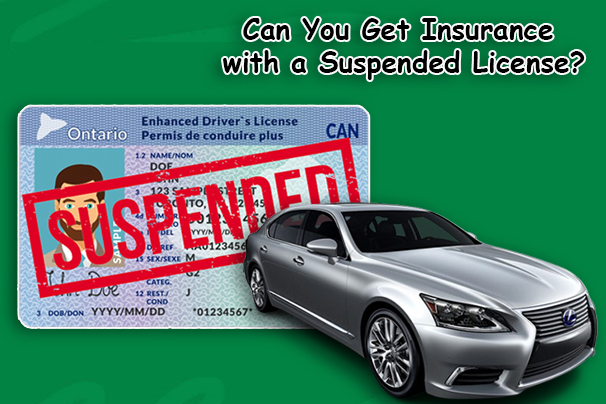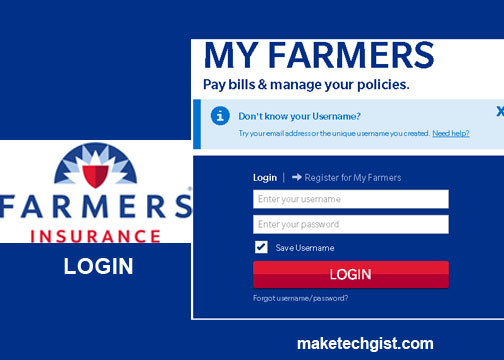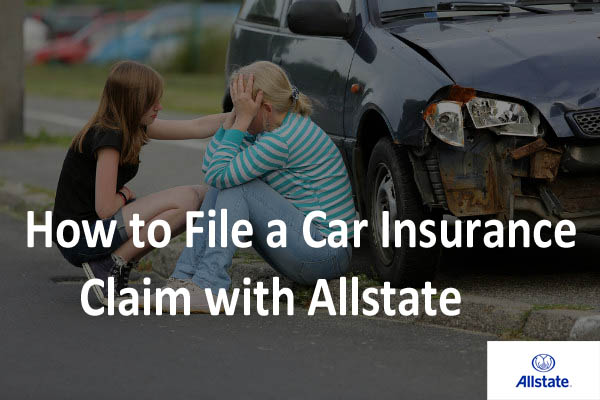A driver’s license can be suspended for various reasons, including traffic infractions, driving without insurance, or being cited for driving while intoxicated. Regardless of why your license was suspended, most insurance providers will consider you as a higher-risk driver. Therefore, you should be ready to pay more insurance as your license is suspended. However, most providers offer coverage for suspended licenses while attempting to regain their license. This article provides guidance on obtaining the best car insurance for a suspended license to initiate the process of regaining it.

Can You Get Insurance with a Suspended License?
Yes, auto insurance can still be obtained even if a person’s license is suspended. Driving a vehicle without a current and state-compliant insurance policy is illegal. Even though you are unable to drive right away, ensure you maintain insurance on any cars you own or rent. Maintaining coverage is simpler than letting it expire and requiring reapplying for both driver’s license and insurance.
What is license suspension?
When your license is temporarily suspended, it prevents you from using it to drive. You have to meet the requirements set forth by the department or bureau of motor vehicles in your state to have your license suspension lifted. A DUI, driving without insurance, no proof of insurance, driving, and receiving numerous traffic tickets in a short period are some offenses that result in your license being suspended. A license that is suspended differs from one that has been revoked. If your license is revoked, it may be permanently cancelled, and you may not be able to obtain another one, depending on the state and the grounds.
Reasons Why Insurance May Get My License Suspended
The ability to drive for a short moment leads to the period your driver’s license got suspended. There are various reasons that your driver’s license might get suspended, but it also differs by state. The following are the common ones, including
- Careless driving.
- Accidents caused by fault.
- Unpaid traffic citations.
- Obtaining a significant number of points on one’s driver’s license.
- Driving a vehicle without insurance.
- Medical issues like epilepsy, dementia, or trouble with consciousness.
The requirements for license reinstatement and whether or not insurance costs will increase will be determined by the application of various state laws and the policies of the driver’s current insurer.
Penalties of a Suspended License
You might be able to drive while your license is suspended if you fulfill the state requirements, unlike revocation, which is irreversible. In most states, it’s necessary for suspended drivers to abide by the same insurance requirements. The following includes
SR-22 requirements
An SR-22, or certificate of financial responsibility, is a document submitted by a provider to the state to confirm the minimum required liability coverage. However, not all providers offer SR-22 filing, as you might require changing to a provider that offers this service.
FR-44 requirements
In some states, an FR-44 form is required to show that you have purchased and maintained car insurance with higher liability limits than the state mandates. If your license got suspended because of involvement with drugs and alcohol, an FR-44 may be necessary. This is because it has much higher minimum liability requirements, just like SR-22.
Insurance nonrenewal and cancellation
Most policies prohibit car insurance providers from canceling insurance unless a criminal activity or inability to pay premium occurs, but state laws differ. However, following a suspension, car insurance providers are free to decline a renewal request. Your provider might refuse to renew your policy at the end of the term even if it hasn’t been canceled. This is because nonrenewal is subject to less stringent requirements than cancellation.
How to Get Insurance with a Suspended License
All insurance companies may cover a suspended driver, but because they are viewed as high-risk, their rates may be expensive. Moreover, you will often get coverage from a non-standard car insurance provider. The following are procedures to consider if you need to get insurance for your suspended driver’s license:
Apply for a hardship or limited license
The majority of insurance companies will not insure you if your license is suspended. However, if you have a restricted or hardship license, they might. States have different laws about this. To see if you qualify to apply for a restricted or hardship driver’s license, contact the department of motor vehicles in your state.
Get affordable insurance
Average premiums for high-risk drivers are among the highest, and not all insurance providers will cover them. By comparing quotes, you can get the best deal on auto insurance for people with suspended licenses.
Get an FR-44 or SR-22
To demonstrate that you have the bare minimum of liability insurance, your state may require your insurer to submit a certificate of financial responsibility. During the period that your license is suspended, you will be responsible for covering any repairs or replacements of the vehicle.
Final Thought
To get the common cost of car insurance after your insurance expires, which could lead to a suspended license, researchers have gathered sample rates for drivers in New York and Pennsylvania from three major providers at three intervals. This may include no lapse in coverage, a short lapse (less than 30 days), and a long lapse (more than 30 days). Your rates will also be affected by the circumstances surrounding the suspension of your license. For instance, having a DUI would affect your rates even after your license is restored.





